
Optimizing aggregation in the Vitess query planner
The Vitess query planner takes multiple passes over a query plan to optimize it as much as possible before execution. A recent tricky bug report led to an improvement in how the optimizer functions.


Dealing with large tables
Large databases often have a small number of very large tables that makes scaling difficult. How can you scale with these while keeping your database performant? This article covers three techniques.


Sharding strategies: directory-based, range-based, and hash-based
Learn about the different types of sharding: directory-based, range-based, and hash-based plus some of the pros and cons of each.


Announcing Vitess 20
Vitess 20 is now generally available.


Self-managed Vitess vs Managed Vitess with PlanetScale
PlanetScale and Vitess have a close relationship. Learn what it looks like to run Vitess on your own vs using PlanetScale. We cover cost, time to implement, management, and more.

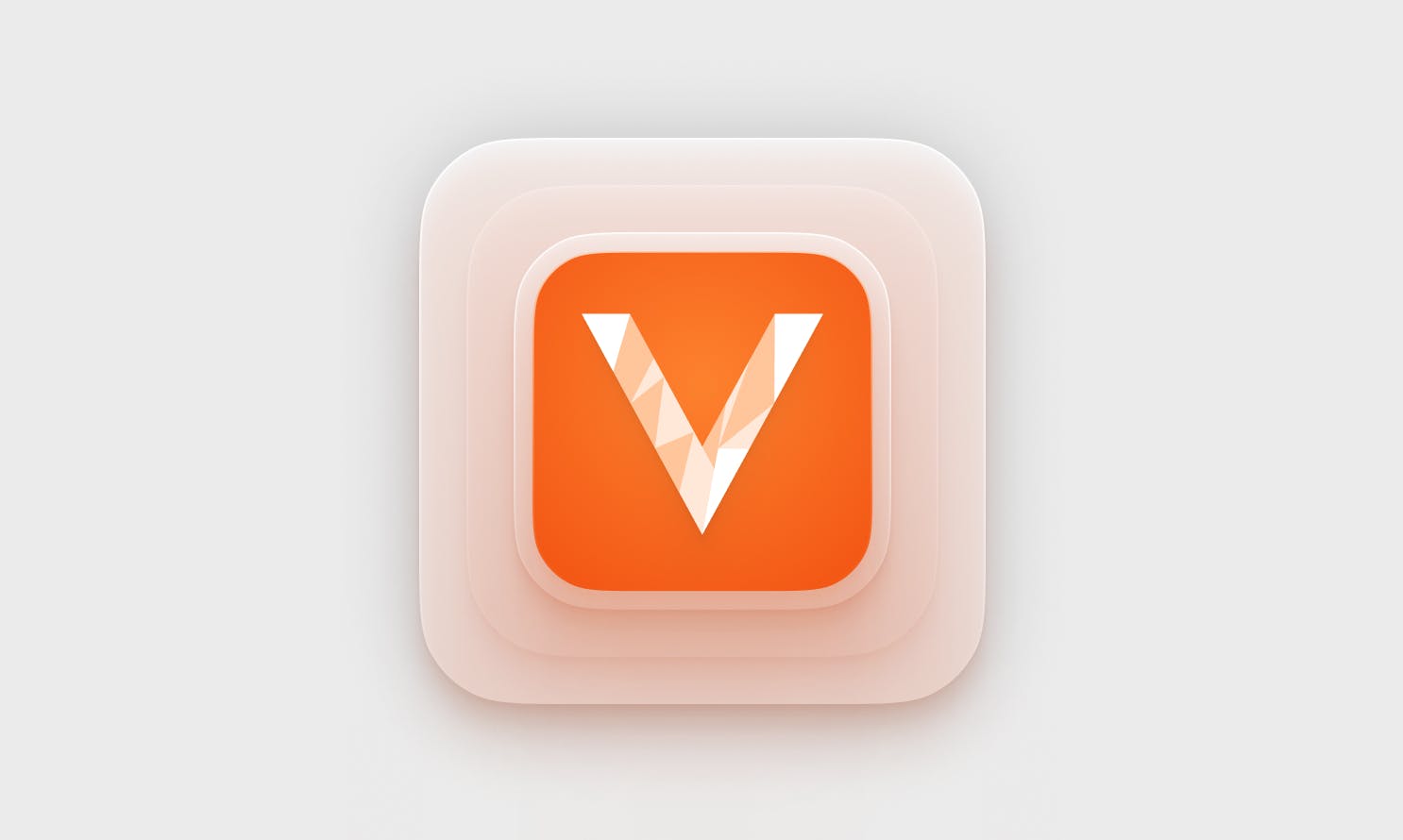
Achieving data consistency with the consistent lookup Vindex
How we implemented a consistent lookup Vindex in Vitess to ensure data consistency without using 2PC


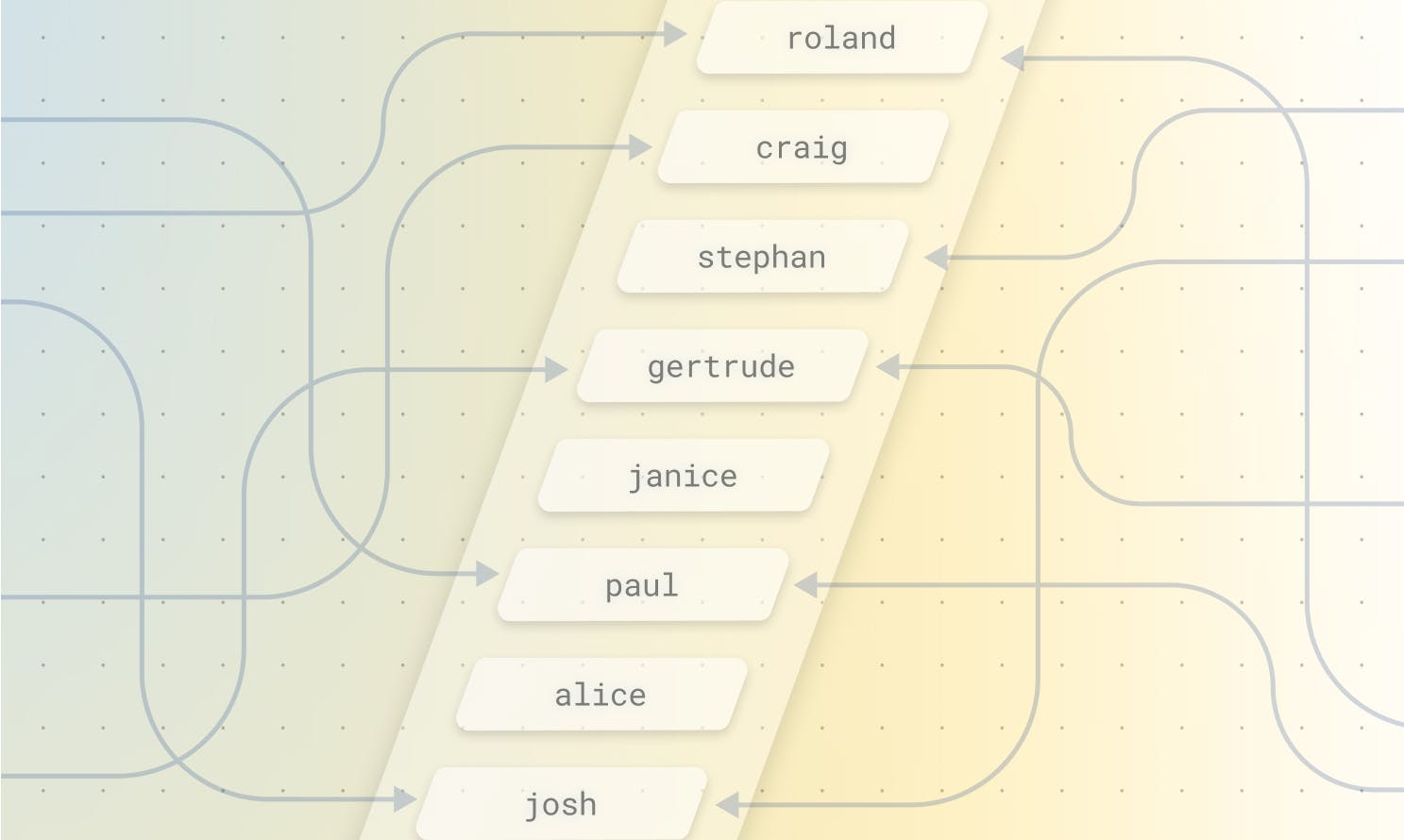
The MySQL adaptive hash index
The adaptive hash index help to improve performance of the already-fast B-tree lookups


Introducing global replica credentials
With global replica credentials, you can now automatically route reads to the closest replica.


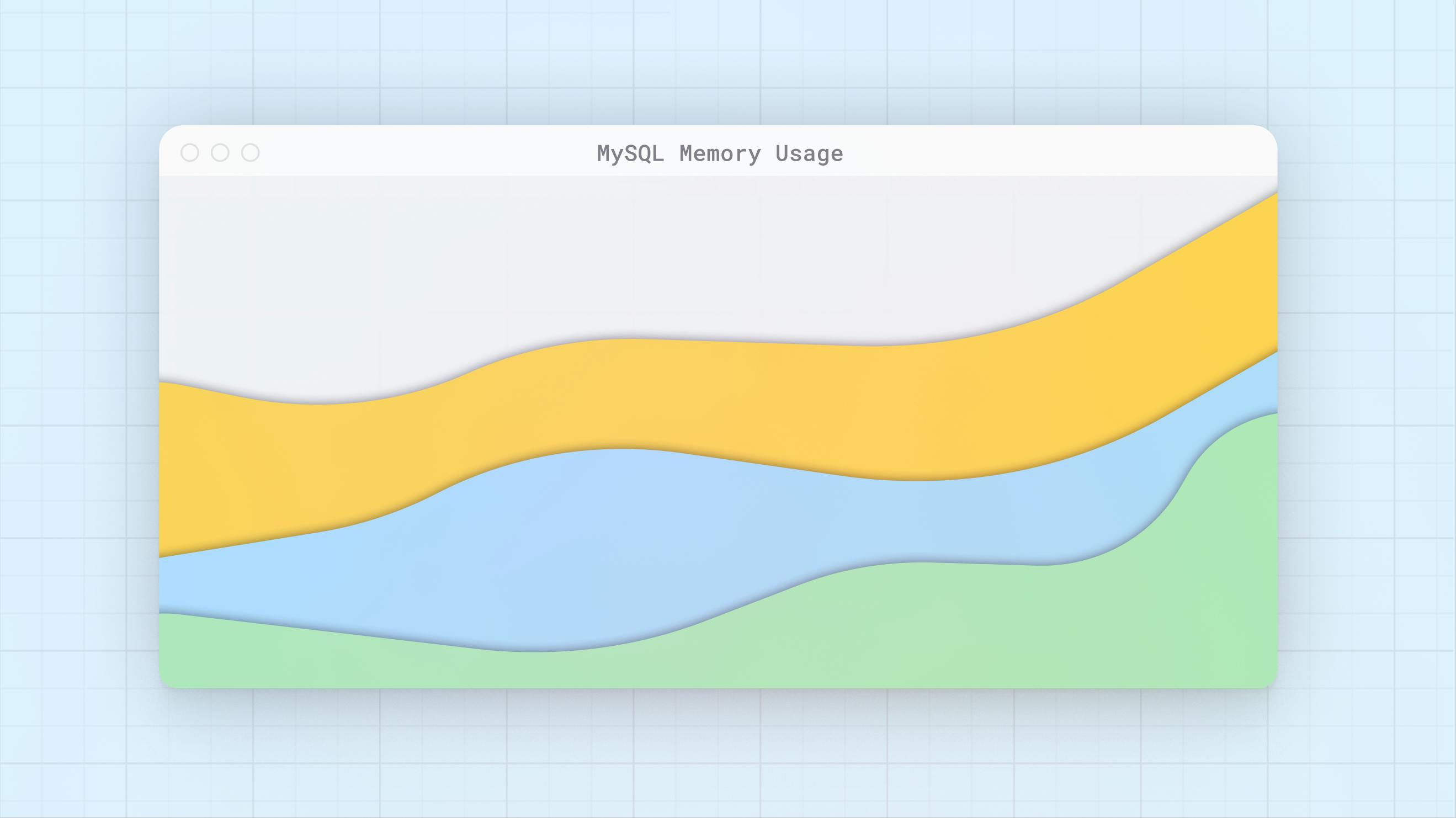
Profiling memory usage in MySQL
Learn how to visualize the memory usage of a MySQL connection


Summer 2023: Fuzzing Vitess at PlanetScale
My experience working as an intern in the Vitess query serving team for PlanetScale.

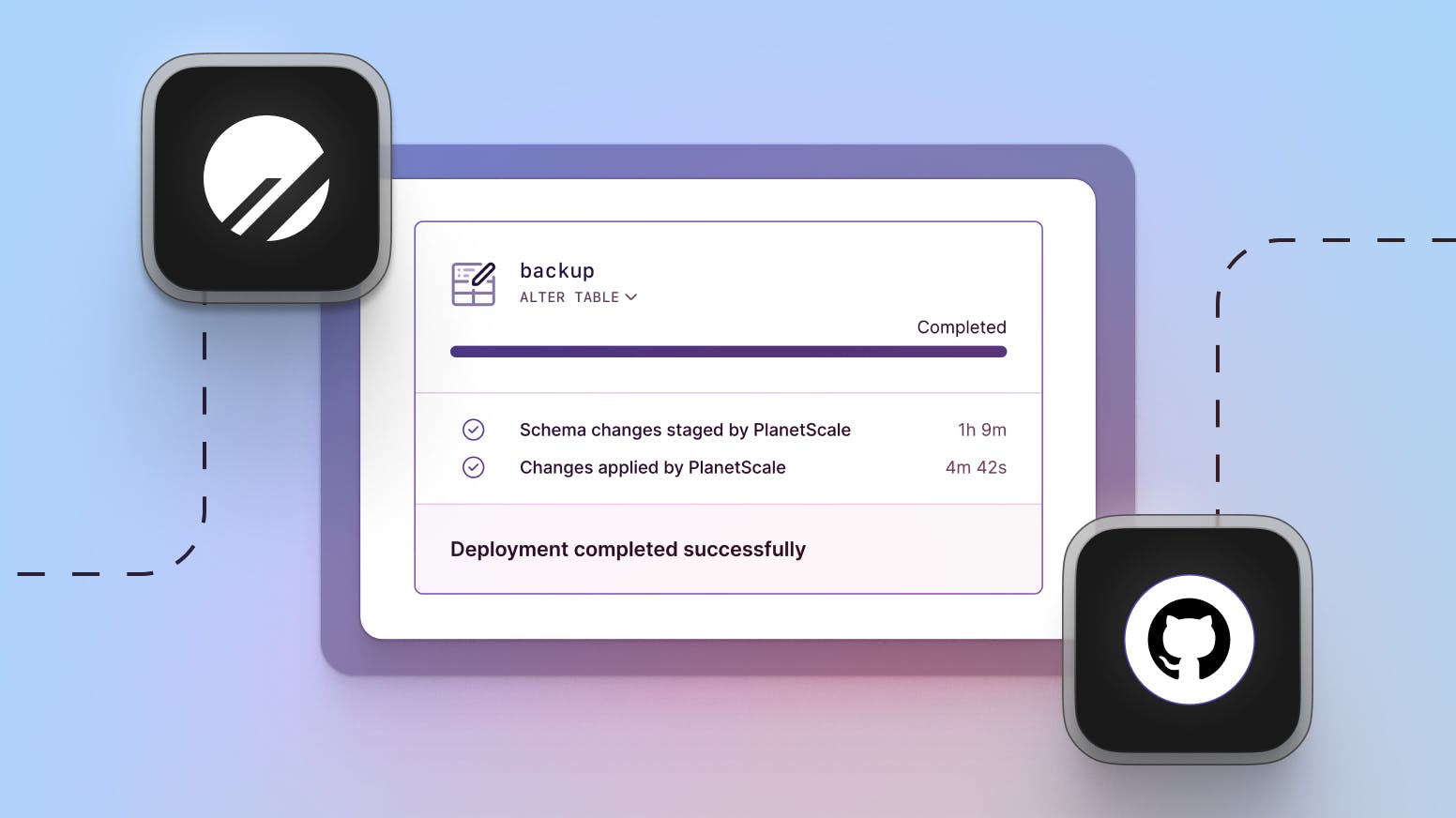
How PlanetScale makes schema changes
Learn how PlanetScale uses GitHub Actions and PlanetScale to automate schema changes on our own application.

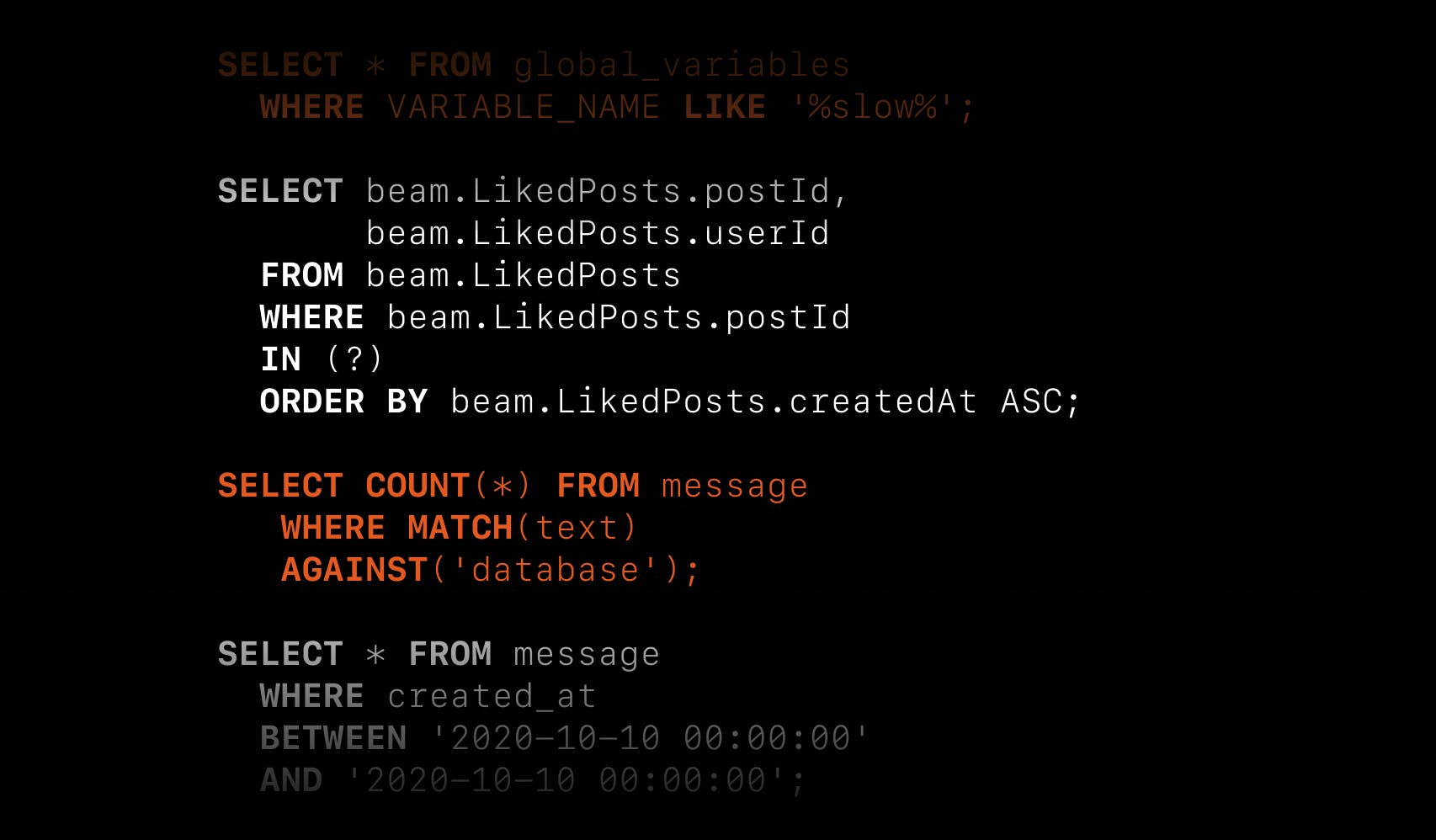
Identifying and profiling problematic MySQL queries
MySQL has built-in functionality for collecting statistics on and profiling your MySQL queries. Learn how to leverage these features to identify problems.


The Problem with Using a UUID Primary Key in MySQL
Understand the different versions of UUIDs and why using them as a primary key in MySQL can hurt database performance.

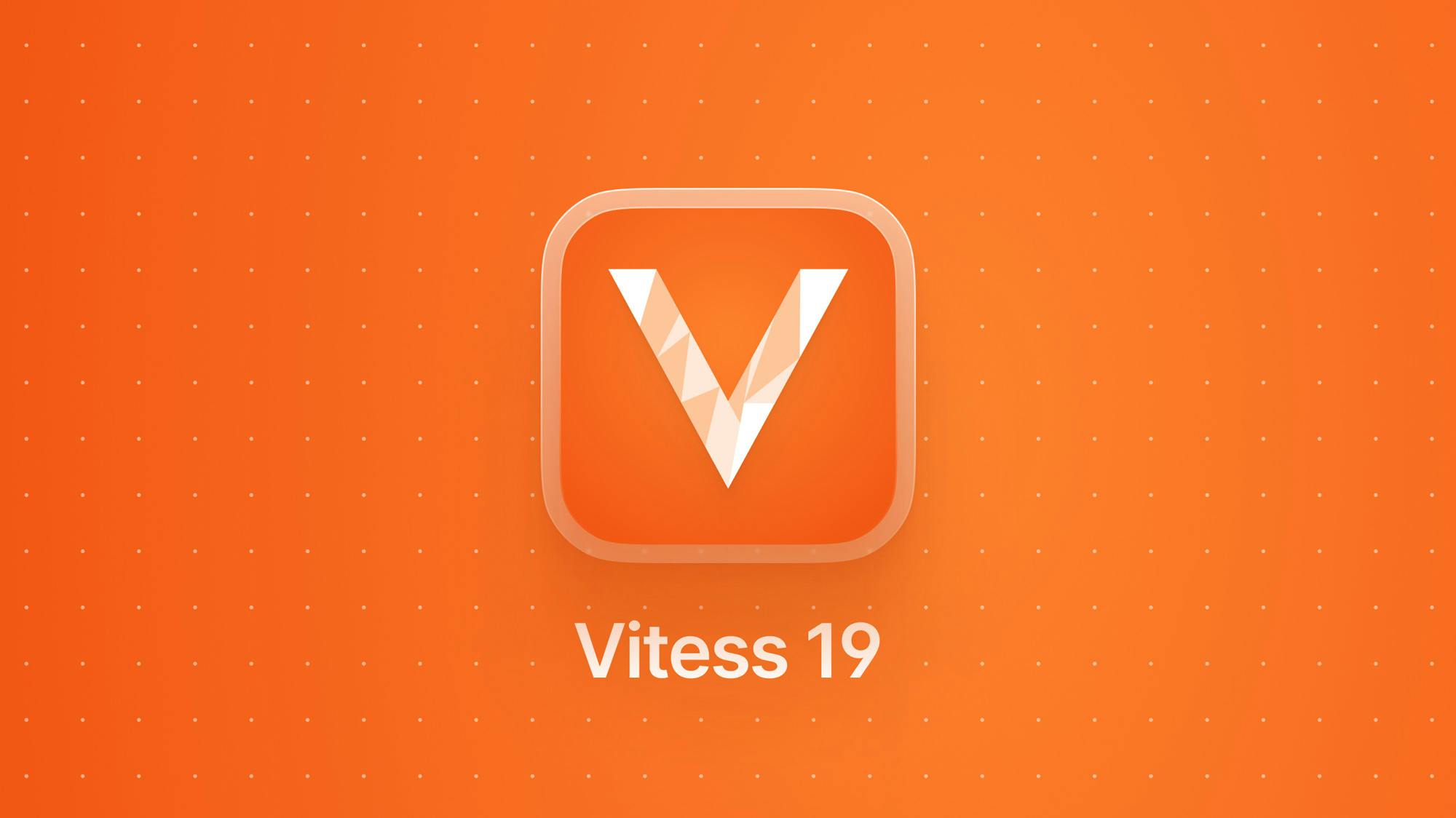
Announcing Vitess 19
Vitess 19 is now generally available.


PlanetScale forever
PlanetScale is committed to providing a reliable and sustainable platform for our customers, not just in the short-term, but forever. For this reason, we are prioritizing profitability.

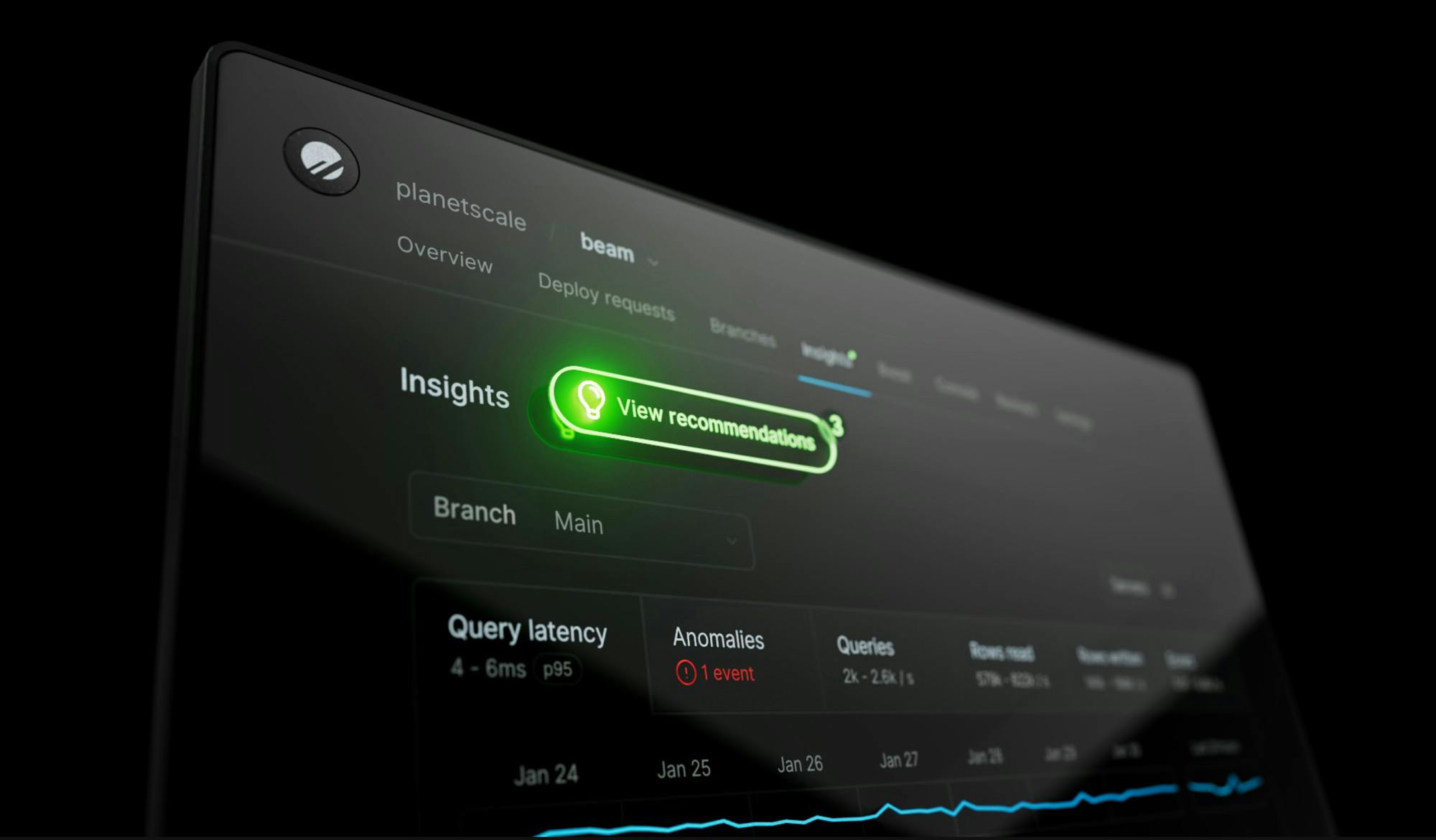
Introducing schema recommendations
Automatically receive recommendations to improve database performance, reduce memory and storage, and improve your schema based on production database traffic.



Foreign key constraints are now generally available
You can now enable foreign key constraints to enforce referential integrity in your PlanetScale database.


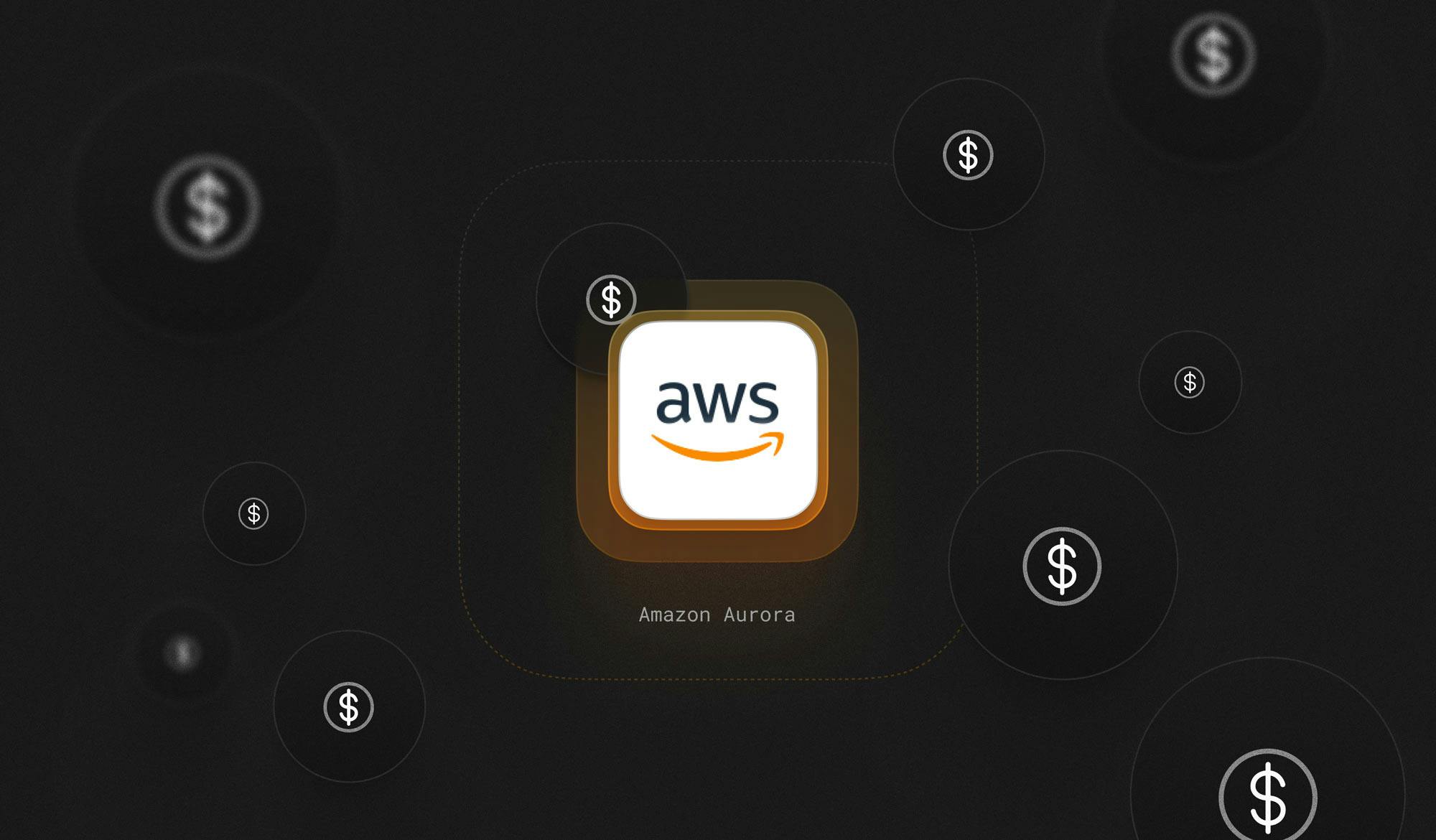
Amazon Aurora Pricing: The many surprising costs of running an Aurora database
Amazon Aurora is pitched as a straightforward and scalable database service on AWS, but there are associated costs that you might not be aware of.

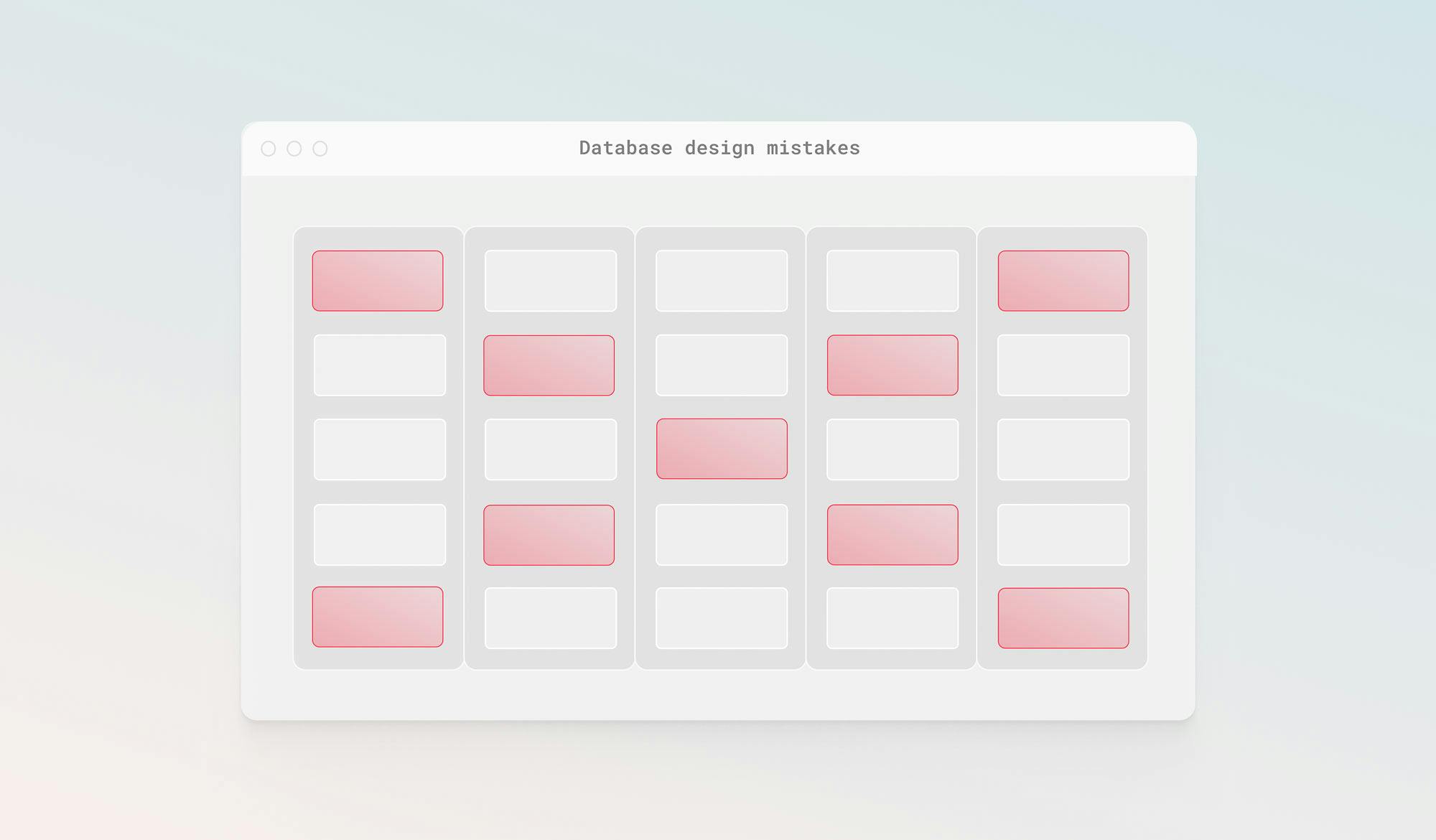
Three common MySQL database design mistakes
Learn about a few common mistakes when designing your MySQL database schema.

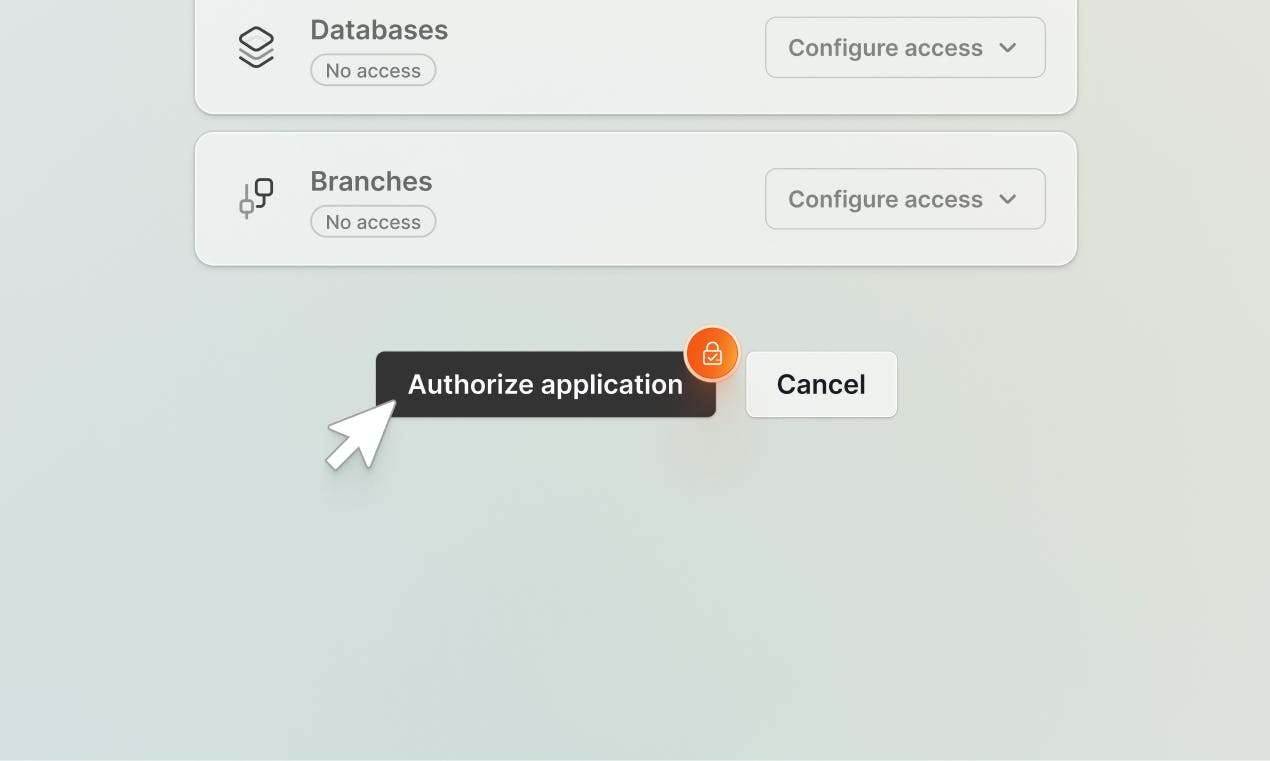
OAuth applications are now available to everyone
You can now build integrations that seamlessly authenticate with PlanetScale and allow management access to your users’ organizations and databases from your application.


Deprecating the Scaler plan
Today, in our effort to continue being the best database for serverless and applications that require massive scale, we are deprecating the Scaler plan.

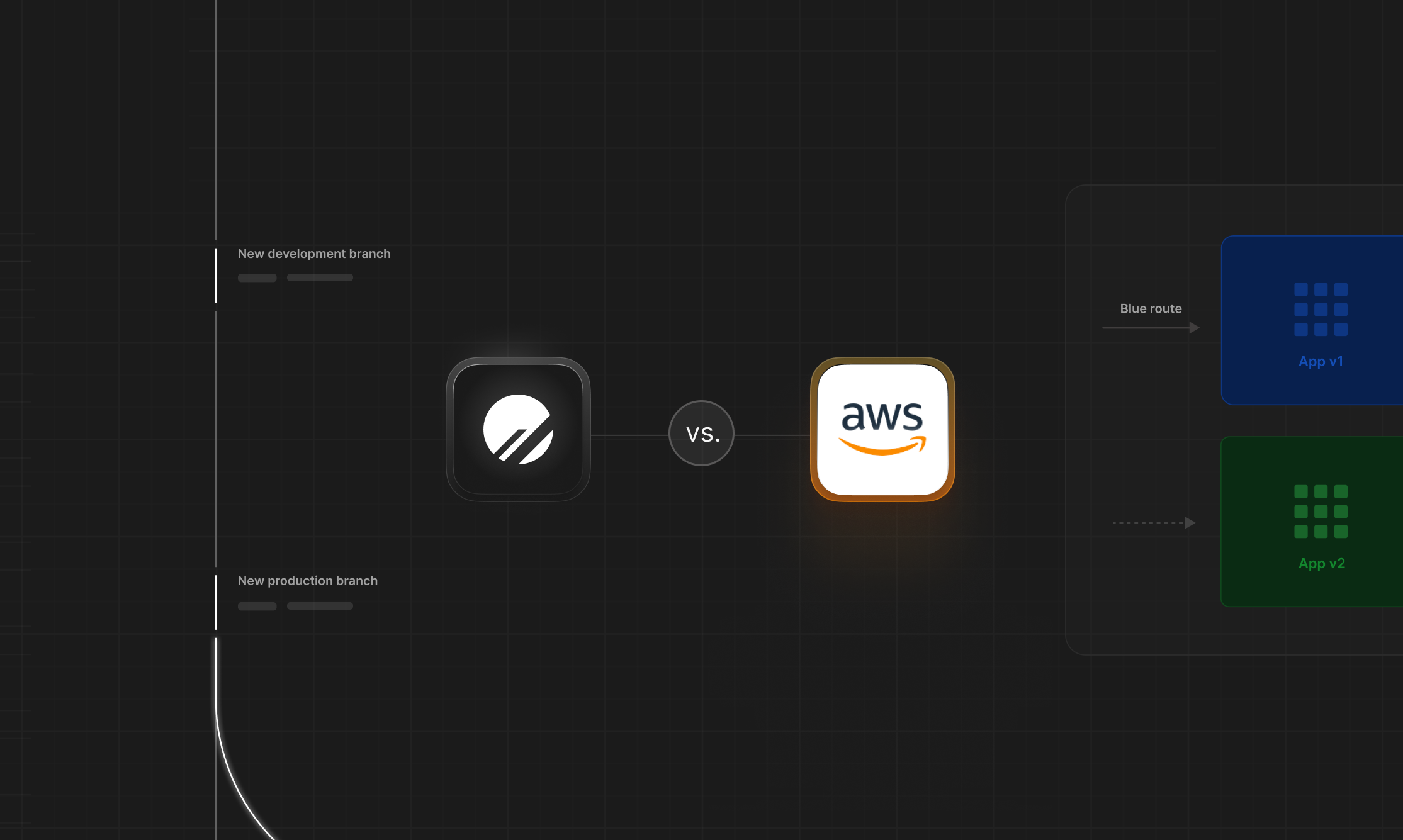
PlanetScale branching vs. Amazon Aurora blue/green deployments
Learn the key differences between Amazon Aurora blue/green deployments and PlanetScale branching.

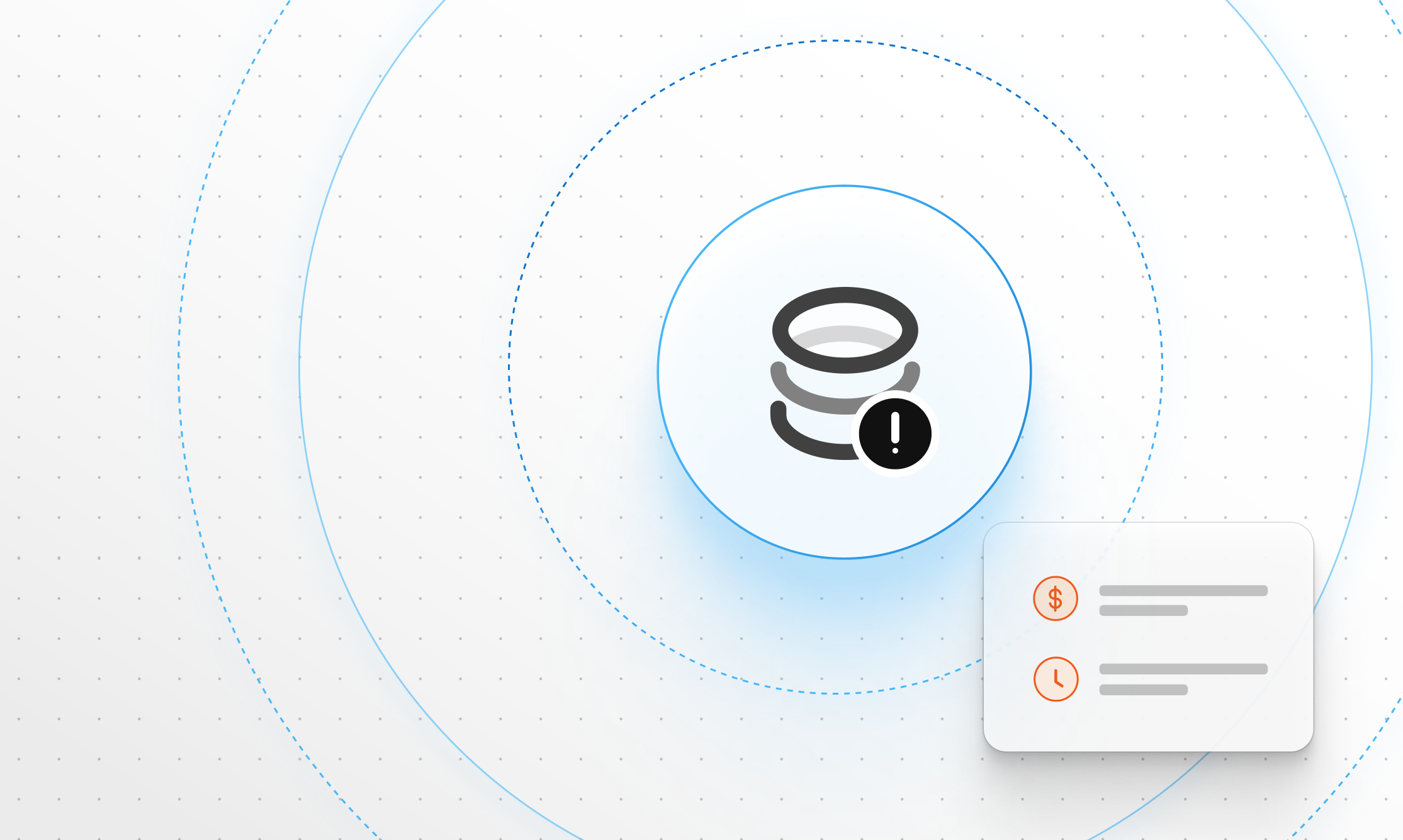
Considerations for building a database disaster recovery plan
Learn different considerations and best practices for quickly and efficiently recovering your database when downtime hits.

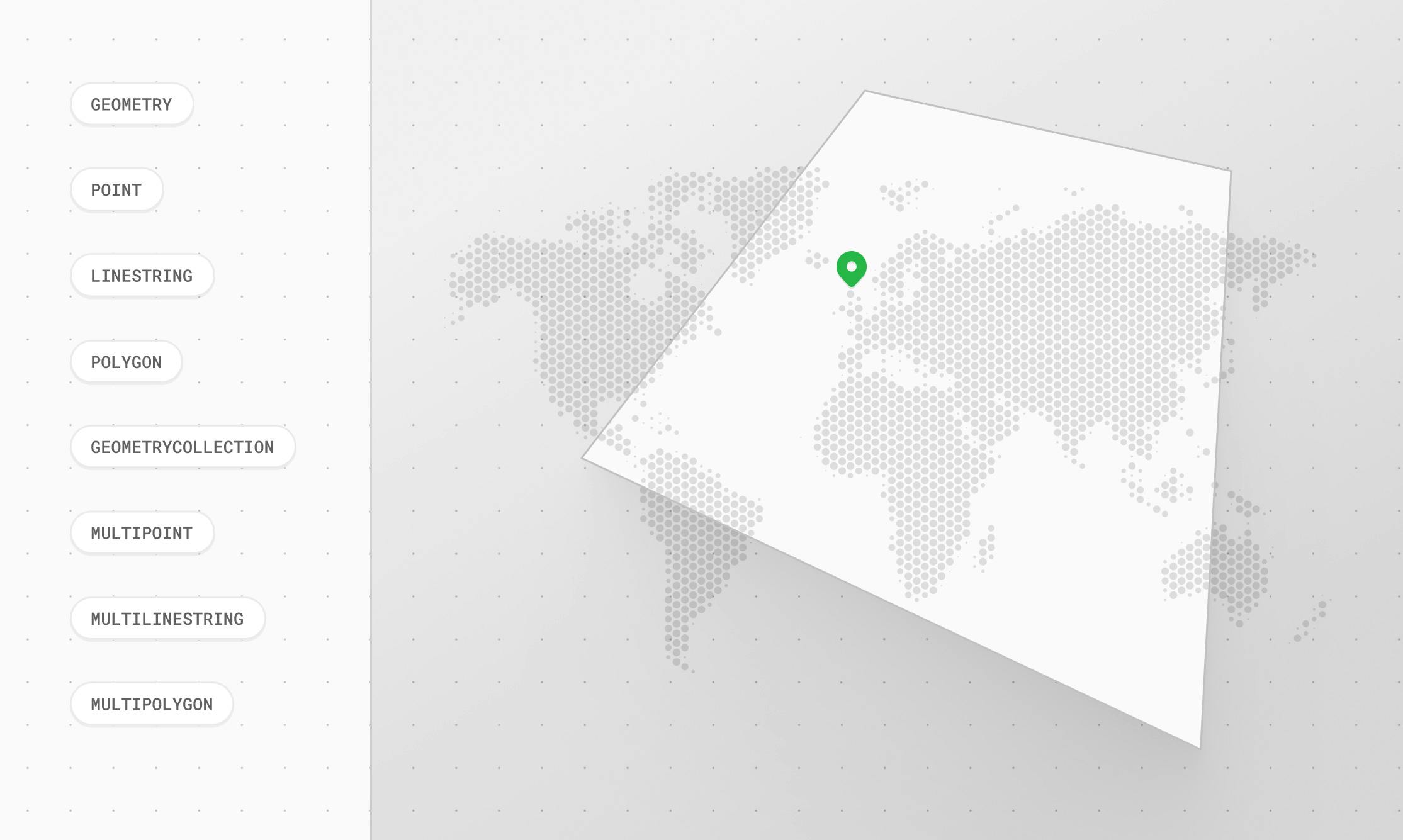
Working with Geospatial Features in MySQL
In this blog post, we explore how complex data and geographic features can be represented in MySQL.

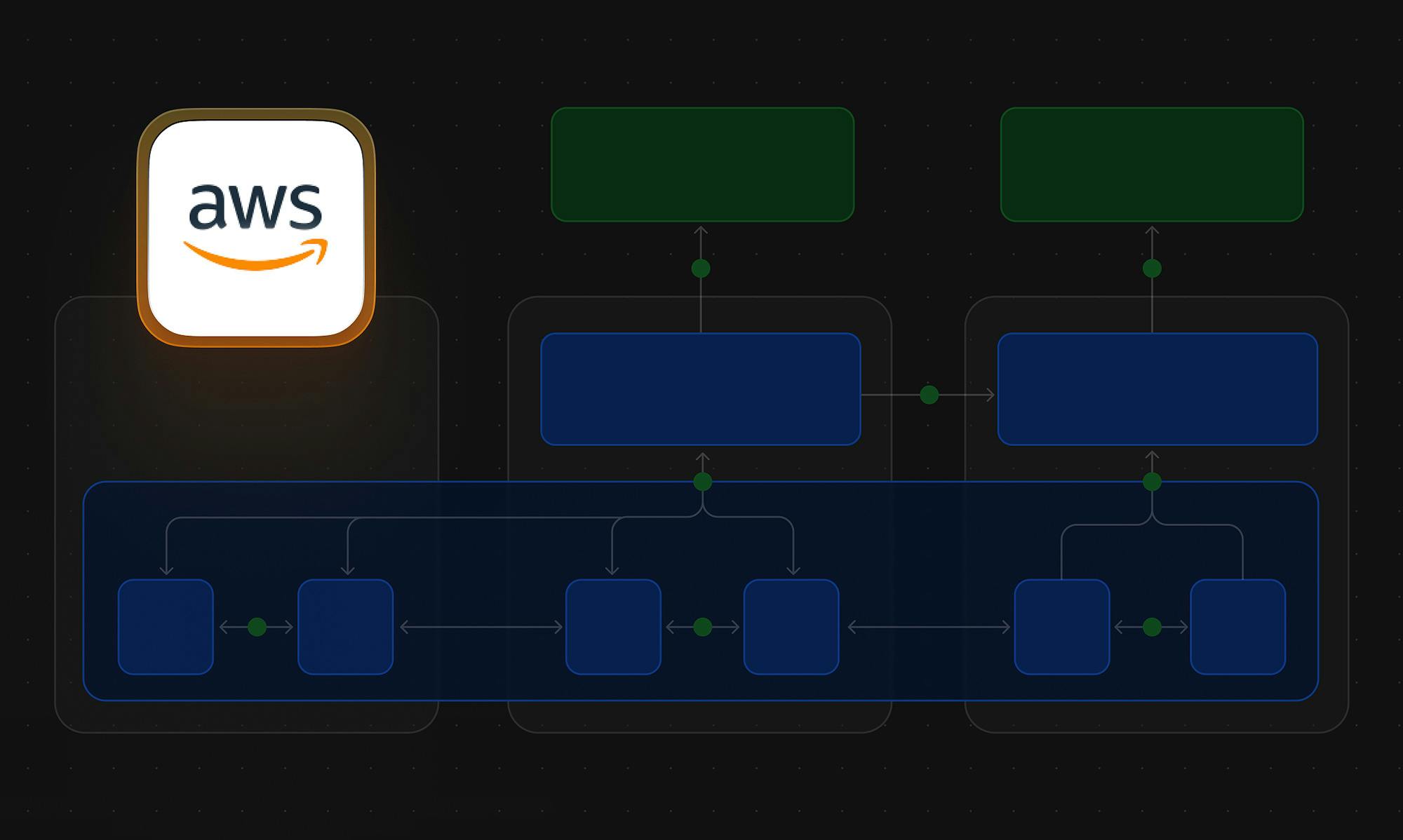
PlanetScale vs Amazon Aurora replication
Learn about how Amazon Aurora replication works, and how it compares to the traditional MySQL replication strategy used by PlanetScale.

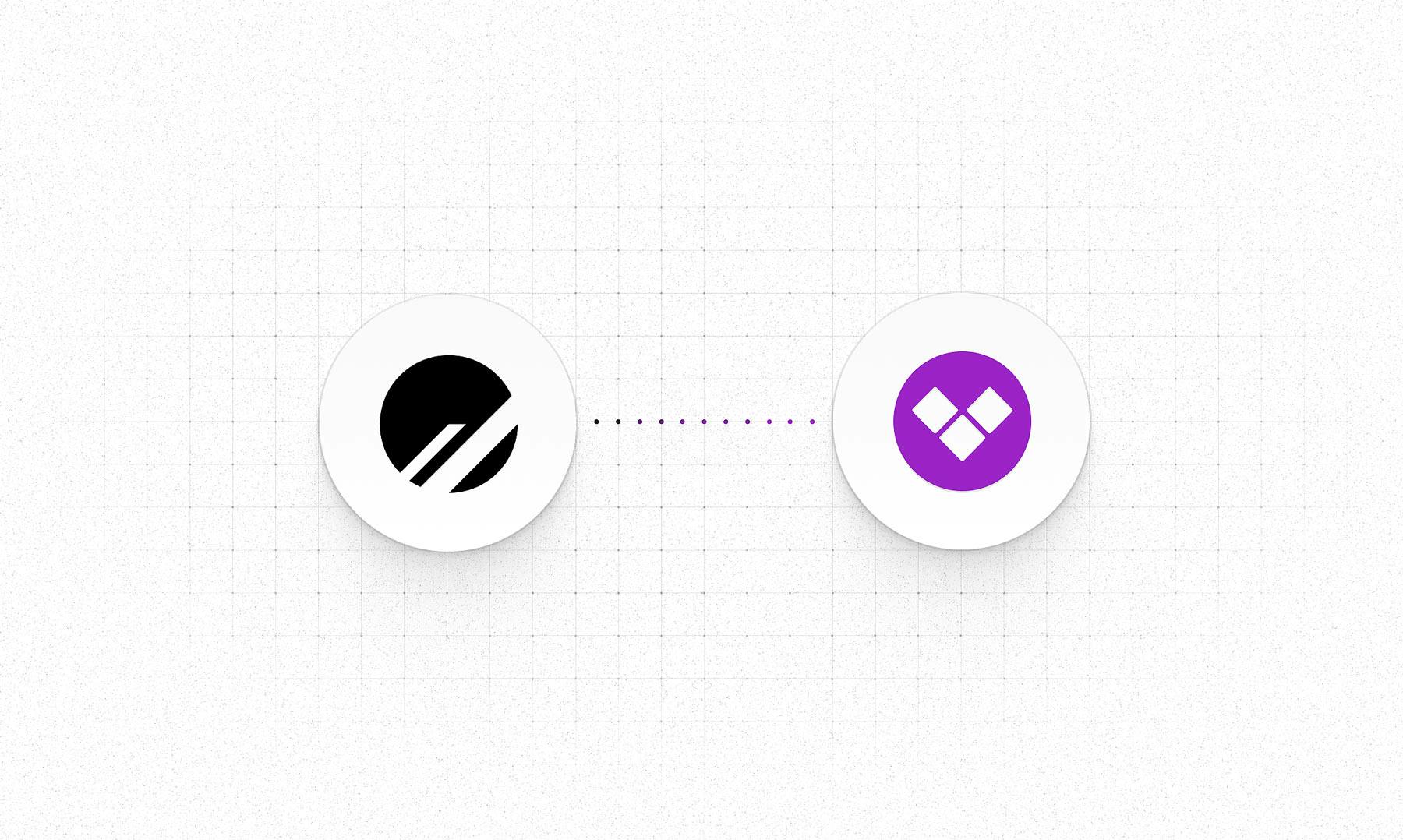
Introducing the Vantage and PlanetScale integration
The Vantage + PlanetScale integration is now available.

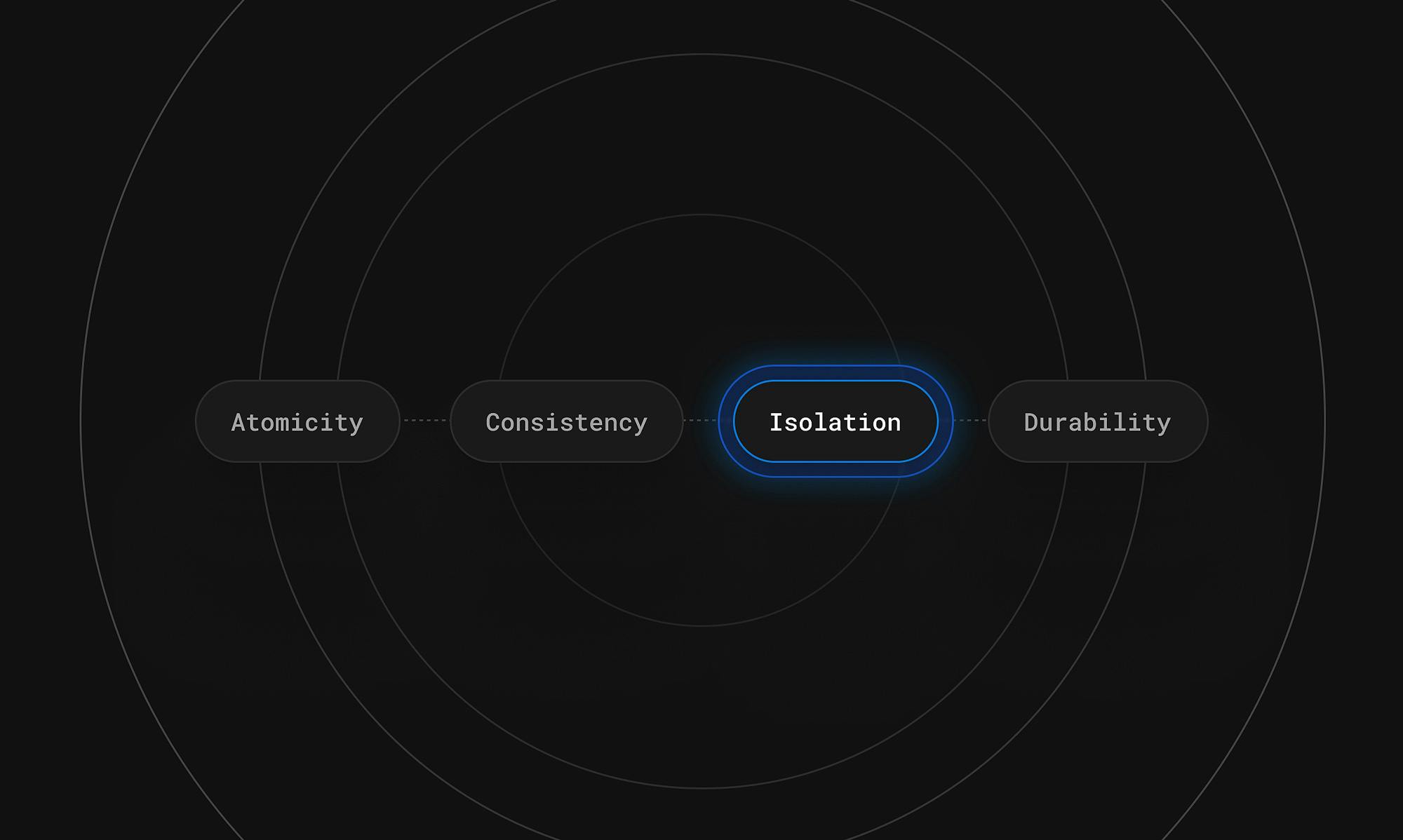
MySQL isolation levels and how they work
Learn about the various isolation levels used by MySQL to allow concurrency in your database.

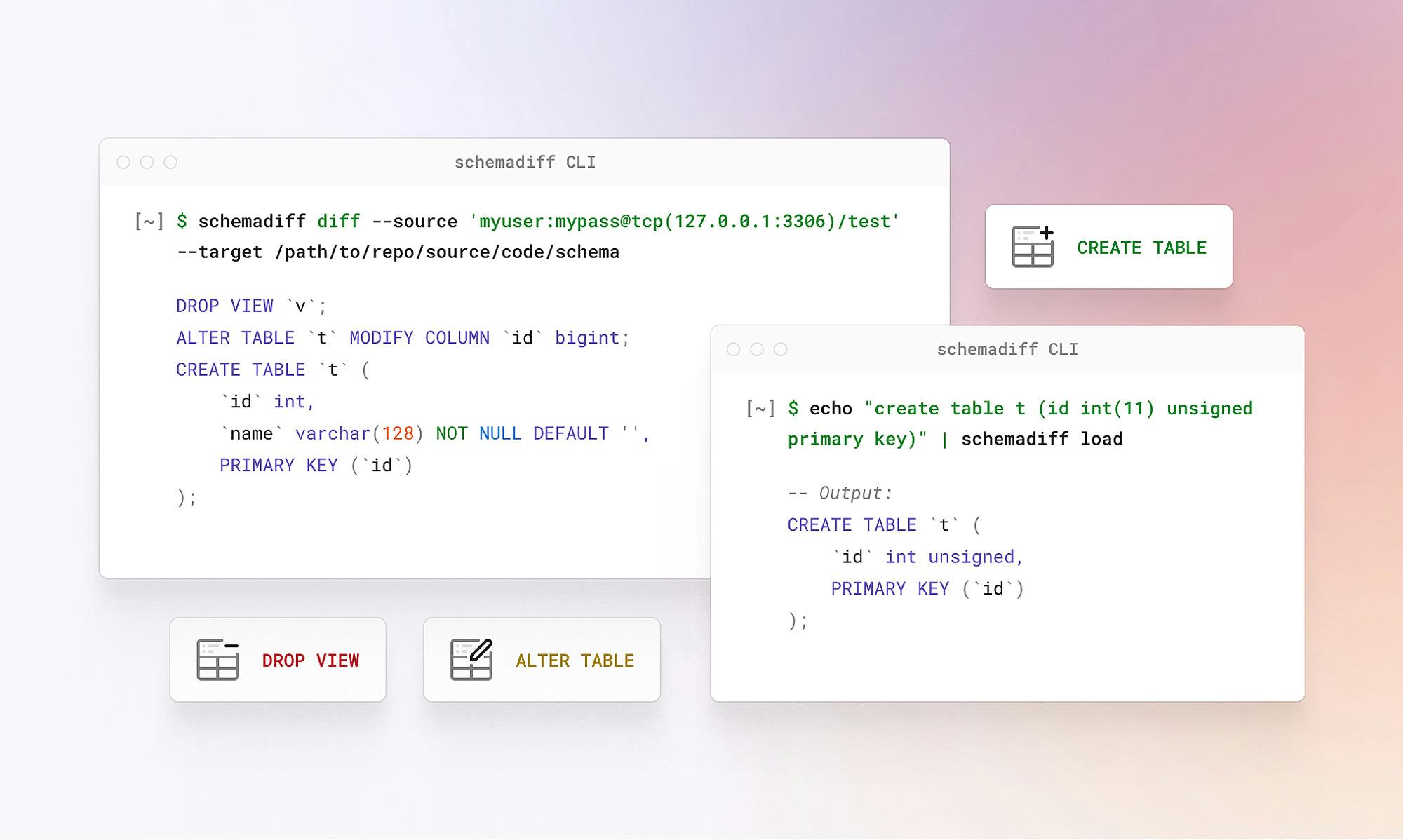
Introducing the schemadiff command line tool
We are releasing schemadiff, an open source command line tool to generate diffs between two MySQL databases.

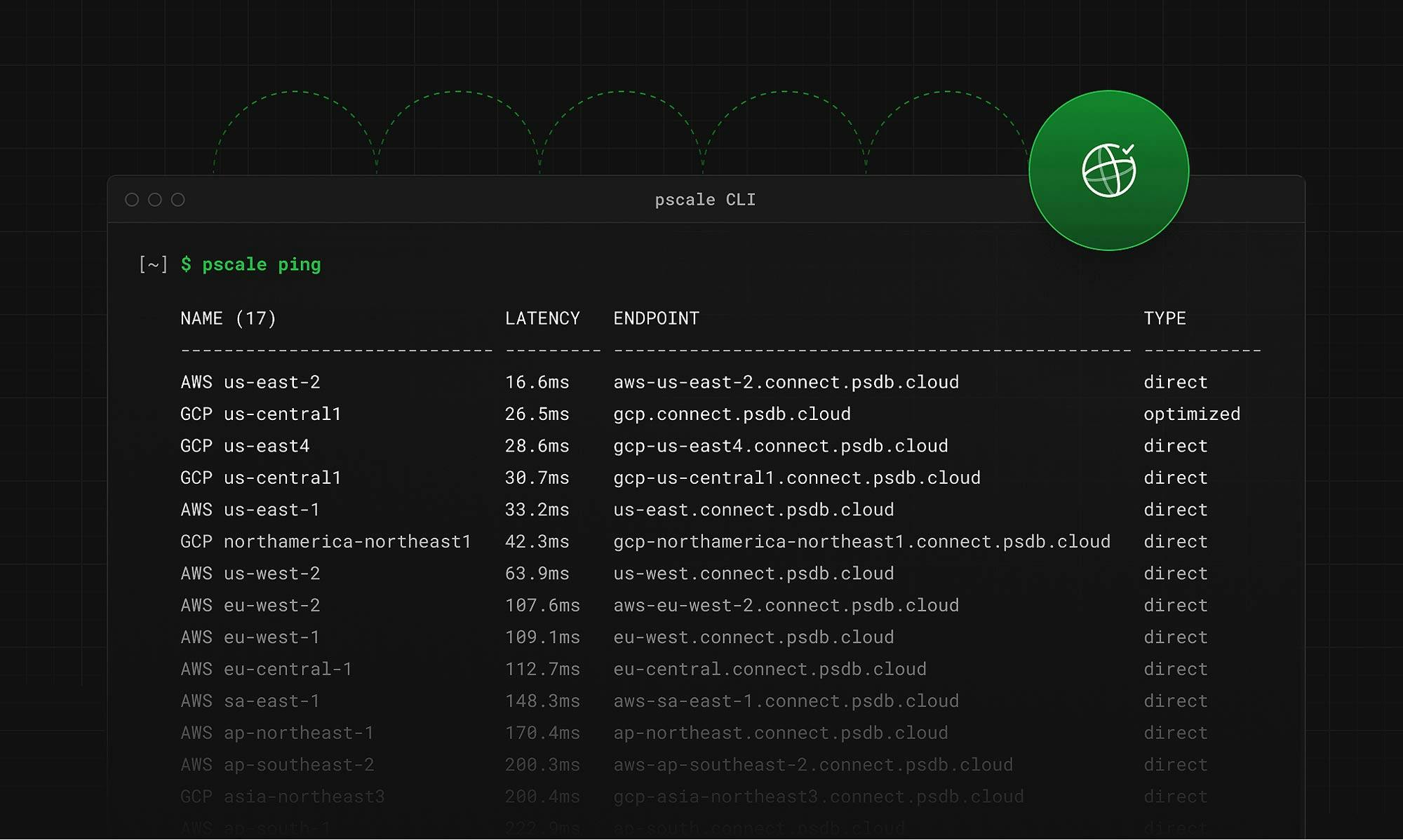
$ pscale ping
How close am I to PlanetScale? Use our new CLI command, pscale ping, to find out.

